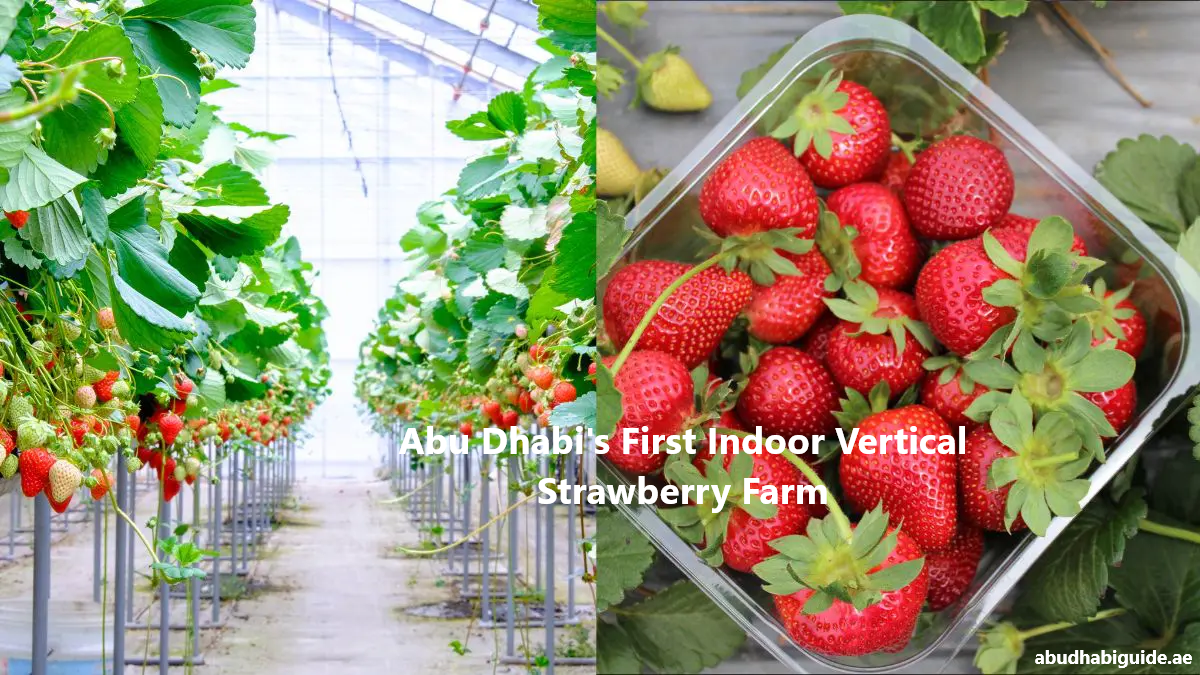Innovating Agriculture: What Is Indoor Vertical Farming?
Growing crops in stacked layers in controlled settings, indoor vertical farming is a novel agricultural technology that makes the most of available space and resources. This method optimizes growing conditions by utilizing cutting-edge technology including hydroponics, aeroponics, and artificial intelligence. Indoor vertical farms can grow high-quality crops all year round, independent of the outside weather, by utilizing LED lighting and climate control systems. Because this farming approach uses a lot less space and water than traditional farming methods, it is especially helpful in areas where there is a shortage of arable land.
Why Abu Dhabi? The City’s Role in Advancing Sustainable Agriculture
Abu Dhabi is trying to establish itself as the Middle East‘s leader in sustainable agriculture. The emirate’s forthcoming construction of the first indoor vertical strawberry farm in the area is a testament to its dedication to food security and sustainability. This project being created by Plenty, a California-based company, and Mawarid, a subsidiary of Alpha Dhabi Holding, with funding totalling AED 500 million. In line with the UAE’s National Food Security Strategy 2051 and the Agrifood Growth and Water Abundance cluster, the project seeks to increase domestic food production and decrease dependency on imported goods.
Growing Strawberries Indoors: The Science Behind It
The 7,500 square meter indoor vertical strawberry farm in Abu Dhabi is anticipated to produce more than two million kilograms of strawberries a year. This cutting-edge facility will use hydroponic farming methods, which let strawberries grow without the need for soil by using nutrient-rich water solutions. Grown year-round, the controlled environment will improve the quality and flavor of the strawberries. Cutting-edge technology optimize growth conditions, guaranteeing the highest-quality strawberries are produced. These technologies include proprietary software and bespoke hardware.
Benefits of Vertical Farming for the UAE’s Food Security
The food security of the United Arab Emirates stands to gain greatly from the many advantages that vertical farming provides. In an area where water scarcity is a major concern, this method conserves essential resources by utilizing up to 90% less water and 99% less land than traditional farming. Furthermore, local production guarantees that consumers have access to fresh produce all year round by reducing the need for transportation, which lowers carbon emissions. About 100 direct employment are anticipated created by the construction of the vertical strawberry farm, boosting the regional economy and advancing the UAE’s larger sustainability objectives.
Future Prospects: The Impact of Vertical Farming on the Middle East
Abu Dhabi’s use of indoor vertical farming represents a major development for the area’s agriculture sector. This project, the first of five planned farms, expected to open the door for similar projects in other Gulf Cooperation Council (GCC) nations. The Middle East’s food production can revolutionized by vertical farming, which uses state-of-the-art technology in conjunction with environmentally friendly methods. This invention supports the UAE’s goal of developing into a smart, sustainable metropolis while also addressing the problems associated with food security. The region can anticipate a trend toward increased food self-sufficiency as more vertical farms spring up, which will ultimately strengthen the agricultural sector’s resilience.





